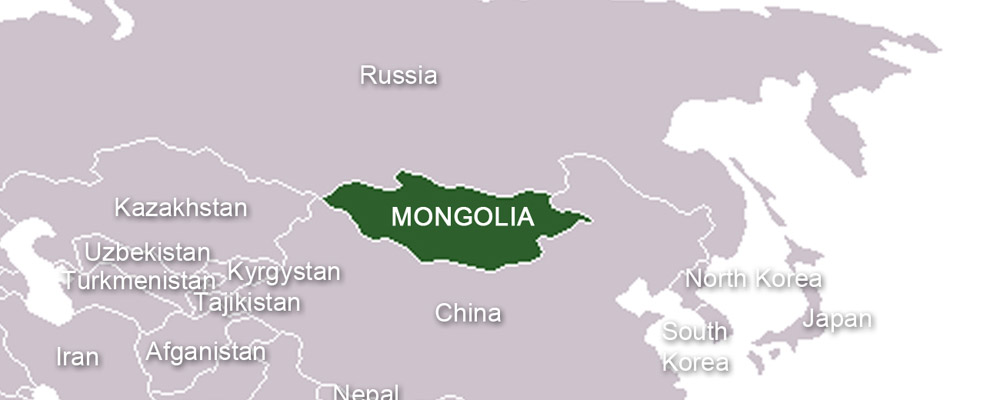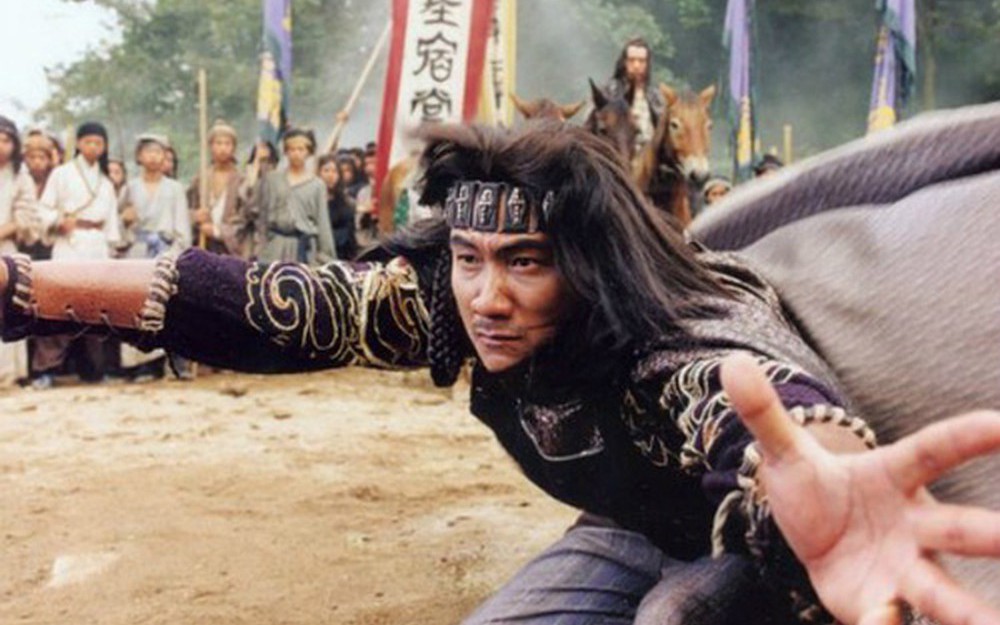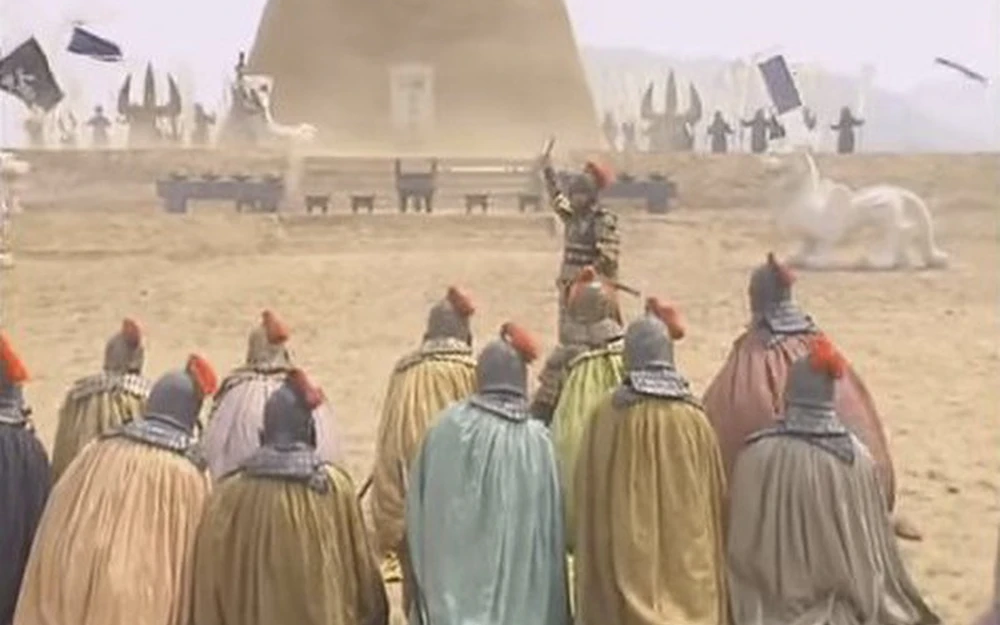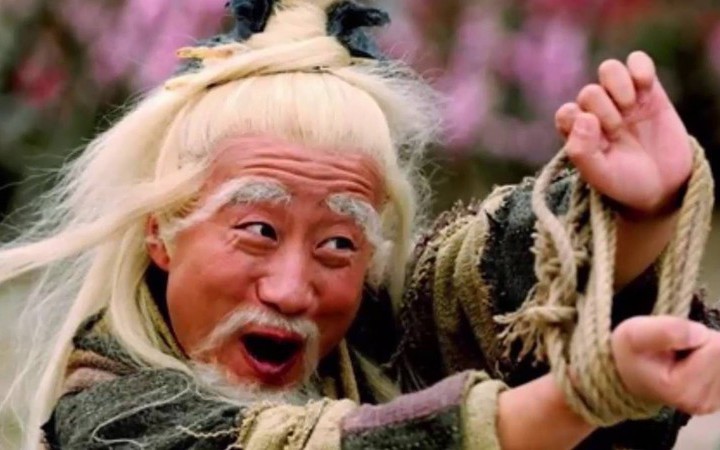How did the Soviet Union block China’s attempt to annex Mongolia?
On June 30, 1945, a plane took off from Chongqing and flew directly to Moscow. On the plane, in addition to the diplomats of the Republic of China Government such as Tong Tu Van, Ho The Ze, Shen Hong Liet, Qian Changzhao, there was also Chiang Kinh Quoc, a person with special close ties to the Union. Shove. He studied in the Soviet Union for 12 years, moreover, he married a Russian girl. Talking about personal feelings, the Chiang family had a good relationship with Stalin.

Mongolia today.
At Moscow airport, the Government of the Republic of China delegation was warmly welcomed by the host. At the time, Chiang Ching-kuo was the chief translator, who later wrote in his memoirs in vivid details: “We went to Moscow and met Stalin for the first time. He was extremely polite. But when the negotiations began officially, his fierce face was revealed …”.
Negotiating Moscow, Song Tu Van is not feasible
Stalin liked to meet in the evening. On the evening of June 30, the two delegations of China and the Soviet Union held brief preliminary talks. First, Foreign Minister Song Ziwen conveyed to the Soviet Union Chiang Kai-shek’s wish for cooperation: “Sir Sun Yat-sen left a testament to the Kuomintang party members that the Chinese revolution must succeed in order to succeed. united with the Soviet Union, I hope that this time of our talks can create a basis for the construction of China-Soviet friendship and long-term cooperation.”
True to the account of Chiang Ching-kuo, at first Stalin was very polite: “The former Russian tsarist government wanted to divide China. Now that the Soviet Union respects China’s sovereignty and territorial integrity, we can definitely understand each other.”
Two days later, when formal talks had just begun, Stalin took a different stance. Chiang Kinh Quoc recounted: “I remember very well, at that time Stalin pushed a piece of paper in front of President Sun, arrogant attitude, unsightly gesture. Stalin said: Have you read this yet?
It was the Yalta Agreement signed by Roosevelt, Churchill, and Stalin. Seeing that Stalin had gone straight to the point, Song Ziwen also said bluntly: “President Chiang Kai-shek knew the contents of that agreement. We are here to discuss this matter.”
Stalin said: “It’s okay to discuss, but you can only base on this, Roosevelt signed that agreement.”
Song Ziwen said: “Last day President Chiang Kai-shek told Ambassador Petrov [Đại sứ Liên Xô tại Trung Quốc thời đó] It is not possible to solve the Outer Mongolia problem at the moment, we should put it aside for now.”
“China must recognize Outer Mongolia’s independence,” said Stalin. “Other than that, there’s no other option.”
Stalin was right in saying that the Chinese “had no choice”, because he thought that the Nationalist Government running down to Chongqing would have to rely on the help of Soviet military forces. Moreover, the fact that Mao Zedong’s communist troops were operating in Northeast China also gave Chiang Kai-shek a huge headache – if the Soviet Union did not support the Kuomintang but the Communist Party…
Song Tu Van also had many other difficult problems, such as: China has not yet defeated the Japanese, half of the country has become ashes, if it still cedes Outer Mongolia to the Soviet Union, how can we talk to each other? the people of our country? He reluctantly replied to Stalin: “If any Chinese government loses its territory, it will collapse. Why did the Soviet Union insist on taking Mongolia?”.
“Suppose a military force from Mongolia attacked the Soviet Union, cutting off the Siberian railway, the Soviet Union would be in grave danger,” said Stalin. “So the Soviet Union had to defend Outer Mongolia.”
This saying has many meanings. If Japan loses, who will attack the Soviet Union from Mongolia?
Stalin added: “Whether you recognize Mongolia’s independence or not, that depends on the Soviet position on the issue of the Communist Party of China.”
The negotiations have come to an impasse. Song Ziwen said: “I personally do not have the right to decide on the Outer Mongolia issue, I need to petition President Chiang Kai-shek.”
“No decision power? Then what did you come here for?” asked Stalin.
Chiang Ching-kuo secretly met with Stalin, trying to reason
The next day, Song Ziwen sent a telegram to Chiang Kai-shek, reporting on the situation of the talks and asking Chiang to consider several options as follows:
First, China signed an alliance agreement with the Soviet Union, allowing the Soviet Union to station troops in Mongolia; second, for Outer Mongolia to exercise “high degree of autonomy”; third, Outer Mongolia enjoys military, internal and diplomatic autonomy, but does not have the character of a federal republic of the Soviet Union.
The Americans are very interested in the Sino-Soviet negotiations. President Truman told Secretary of State Byrnes to convey to the Chinese Government the following opinion: “The interpretation of Outer Mongolia’s status in the Yalta Agreement has not been discussed; The US government believes that although legally, the sovereignty of Outer Mongolia still belongs to China, but in practice that sovereignty has not been exercised.
Song Ziwen took the text “must maintain the status quo of Outer Mongolia” in the Yalta agreement to argue. He insisted that the status quo meant that Outer Mongolia’s sovereignty still belonged to China. And Stalin made it clear that the Soviet Union demanded that China recognize Outer Mongolia’s independence. Although these two expressions describe the same truth, the effects are far different.
Of course, Chiang Kai-shek understood the truth in it. Seeing that there was a temporary disagreement on the negotiating table, Chiang Kai-shek telegraphed Chiang Ching-kuo, telling him to meet Stalin personally in his name.
Chiang Ching-kuo recalled:
When we met at Stalin’s house, I said at that time: “We Chinese persisted in the resistance against the Japanese in order to recover the lost territory. Japan hasn’t lost yet [chúng tôi] having ceded such a large land as Outer Mongolia, what is the meaning of our resistance? The Chinese people will definitely call us pedophiles.”
Since it was a private meeting place, Stalin also used less diplomatic words and said bluntly to Chiang Ching-kuo: “You make a lot of sense, but you need to know that today I am not begging you, but I am begging you. he came to me for help. If you have the strength to defeat the Japanese, then of course I won’t say anything. But if you don’t have the strength, your words just now are useless.”
Chiang Ching-kuo said: “You don’t have to worry about Outer Mongolia threatening the safety of the Soviet Union. After Japan loses the battle, Japan will no longer be able to rise again. Only China could attack the Soviet Union from Outer Mongolia, but now that our two countries can ally themselves, China guarantees at least three decades of friendship with the Soviet Union. You know, even if China wanted to fight the Soviet Union, it wouldn’t have the strength to fight.”
Stalin shook his head: “You are mistaken. First, even if Japan loses, that nation will not be destroyed. If the Americans take over Japan, it won’t take more than five years for Japan to get up.”
Chiang Kinh-kuo interjected: “What if the Soviet Union took over Japan?”
“I take over, it’s not like going back for another 5 years.” Stalin continued: “Secondly, at present China is not strong enough to fight us, but as long as China is unified, you will advance faster than any other country. You say alliances, now since I don’t consider you a diplomat, I’ll tell you the truth: treaties are unreliable.”
Chiang Ching-kuo didn’t know what to say anymore.
Stalin continued: “There is also a third reason, just because Japan and China do not have the strength to go through Outer Mongolia to fight the Soviet Union, that does not mean that there are no other forces to attack the Soviet Union.”
“America?”, Chiang Kinh Quoc asked.
“Of course,” said Stalin without hesitation.
Chiang Kinh Quoc thought, he had just signed the Yalta agreement with the Americans, got such a great deal, but he still considered the Americans as enemies. China in his eyes is even more a potential opponent. With such a state of mind, there’s really nothing more to say.
After meeting Stalin alone, Chiang Ching-kuo went to see Petrov, the Soviet Ambassador to China. Petrov also advised China to compromise: “In fact Outer Mongolia is already independent. The Chinese government only needs to admit one thing. If China persists in not recognizing Outer Mongolia’s independent status, we will have no way to negotiate further.”
Petrov said it was not wrong. Until July 9, when the two sides negotiated to the fourth round, the Soviet Union maintained an extremely tough stance on the Outer Mongolia issue.
With no other way, Song Tu Van asked Chiang Kai-shek and received the following instructions:
“Based on the greatest sacrifice and sincerity, the Chinese government now wants to find a way to fundamentally solve the Sino-Soviet relationship, wipe out any disputes and unhappiness that may arise from it. from now on, thereby achieving a thorough cooperation between the two countries in order to fulfill the wish left by the ancestors of Sun Yat-sen in his lifetime to cooperate with the Soviet Union. China’s greatest need is to seek the integrity of its territorial administration and sovereignty and real domestic unification, so there are three problems that it earnestly hopes for the approval and aid of the Soviet Government, and at the same time can concrete and determined response”.
Chiang Kai-shek decided to compromise, he proposed three issues as follows:
First, ensure the integrity of China’s sovereignty over the Northeast region; China and the Soviet Union jointly used the two ports of Lushun and Dalian for a period of 30 years, the ownership of the port and railway belonged to China. Second, the Antai . Mountains[6] is a part of Xinjiang. Third, the Soviet Union could only aid the Kuomintang, not the Chinese Communist Party.
In exchange for those three conditions, Chiang Kai-shek expressed: “The Chinese government hopes that after defeating Japan and after the Soviet government accepts the three conditions mentioned above, [chúng tôi] will agree to the independence of Outer Mongolia.”
In his memoirs, Chiang Ching-kuo further elaborated on his father’s directive: what Chiang Kai-shek said “agreeing to the independence of Outer Mongolia” must be approved by the people of Outer Mongolia and must be voted according to the original principle. principles of the Three Citizens. If the vote of Outer Mongolia citizens favors independence, then the new Nationalist Government can recognize Outer Mongolia’s independence. No matter what, always have to save face.
Stalin agreed to Chiang Kai-shek’s demands.
On August 14, 1945, the “Treaty of friendship between China and the Soviet Union” was signed in Moscow. Song Tu Van refused to sign and resigned as Minister of Foreign Affairs, Vuong The Kiet took over this position, signing the Treaty on behalf of China.
The next day Japan announced its unconditional surrender.
The treaty was signed, everything after that could not be saved anymore. On October 20, 1945, Outer Mongolia held a referendum. Chiang Kai-shek sent Standing Deputy Minister of Internal Affairs Lei Fazhang to “observe” the vote. Chiang Kai-shek told Lei Fazhang: “Just observe, don’t interfere, don’t say anything.”
Lei Fazhang later recounted the voting situation he “observed”: “This vote is seen as the act of the Outer Mongolians expressing to the world their independence aspirations. In fact, that vote was placed under the supervision of Outer Mongolian Government officials, using a registered vote to indicate whether to approve of independence or not, so it was really difficult for the people to be free to express their will”.
Voting results showed that a total of 490,000 voters, 98% of whom participated in the vote, unanimously approved of Outer Mongolia’s independence. On January 5, 1946, the Nationalist Government declared the independence of Outer Mongolia.
The only time the Kuomintang government voted against it at the United Nations
In 1949, Chiang Kai-shek lost the battle and fled to Taiwan. Chiang kept a close eye on the story of Stalin breaking his promise of “No aid to the Communist Party of China”. In 1952, Chiang Kai-shek sent a denunciation to the United Nations, condemning the Soviet Union for violating the treaty, demanding the cancellation of the “China-Soviet Friendship Treaty”. The United Nations confirmed that the Soviet Union had violated the provisions of that Treaty and ruled that this Treaty was invalid.
at Blogtuan.info – Source: danviet.vn – Read the original article here


